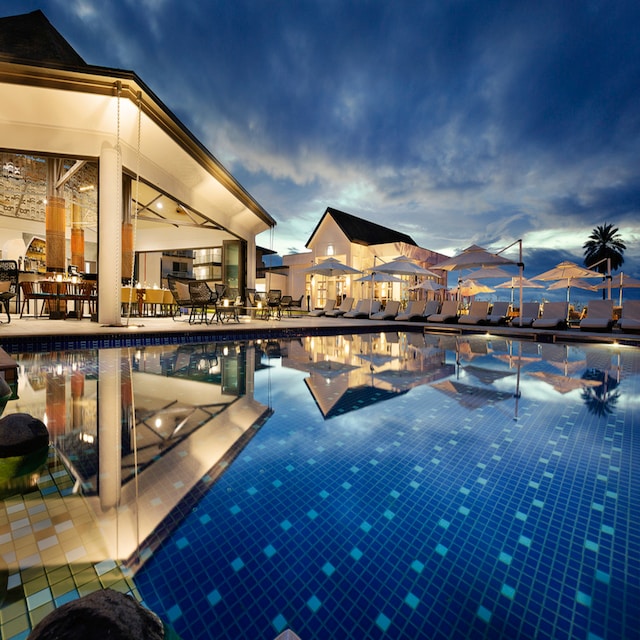Choosing the right hotel is one of the most important decisions you can make when booking your holiday. A poor choice can ruin your trip, while a good one will ensure a fantastic experience.
With so many options, choosing the best hotel can seem daunting. But remember a few things that can help you find the perfect fit.
Amenities
Hotel amenities are a crucial factor to consider when choosing a hotel. They can be the difference between a good and bad experience for your guests, making them more likely to return to you.
Many hotels offer their guests a wide range of hotel amenities and services. The list can be extensive, ranging from a minibar and tea and coffee facilities to high-speed internet access and laundry services.
Most guests consider some of these basic hotel amenities standards, while others can stand out to distinguish a hotel from the competition. Identifying the appropriate guest profiles and catering to your offerings is critical to maximizing your hotel amenities.
For example, if you’re targeting families with children, an air purifier is a great amenity to offer. This device reduces odors and filters pollutants to create a more relaxing atmosphere in the guest room.
A smart TV is another popular hotel amenity, allowing guests to watch their favorite streaming shows from their rooms. Bluetooth speakers are also an excellent addition to a hotel room, letting guests play music from their smartphones or MP3 players.
Aside from these, some unique and creative hotel amenities are becoming increasingly popular with guests. These can be a fun way to add extra value to your hotel and keep guests returning for more. Websites like Travelocity can help you find the best deals without going over budget if you are too busy to plan everything thoroughly. They provide certain tourist attractions in a region without any hassles.
Location
The location of a hotel is an essential factor in the hospitality industry. It directly impacts occupancy rates, revenue per available room and profitability.
It is also essential for hotels to be located in areas that are attractive to tourists and convenient for various guest needs. For example, guests may want to easily access attractions, business areas, airports, transport, and parking facilities.
One of the most common approaches to determining a hotel’s location is comparing its relative proximity to other areas, landmarks, or geographic contexts. For instance, Philadelphia, Pennsylvania, is 86 miles southwest of New York City and relatively close to the city.
This type of comparison, called relative location, provides contextual information and can be more valuable than the absolute location based on the exact point on the map or latitude and longitude.
Vibes
A hotel’s vibes and atmosphere are both essential for a memorable stay. These factors are not limited to the physical facilities of a property but include lighting, decor, room arrangement, flow and amenities.
A good hotel’s vibe will be a welcome relief from the bustle of everyday life and will make you feel right at home. A hotel’s overall design and style should be unique to the brand.
The term “vibe” is popular these days, and it refers to the distinct emotion that a place, or even a person, gives off. It also describes a mood or a zeitgeist, and it has become the prevailing shorthand for cultural atmosphere.
You’re constantly interpreting vibrations from the world around you, from different light and sound levels to touch and smell. Using these different levels of perception, you pick up on people’s feelings, moods and energy levels.
If you’re feeling stressed out or in a bad mood, your vibrations are likely negatively affecting other people and places. On the other hand, if you’re in a good emotional state, you’re emitting positive vibes, attracting others with similar vibrations into your life.
If you feel like a bad vibe is coming on or notice that your feelings are changing and it’s not normal, you should cut ties with the people or places causing the negative vibe.
Staff
Hotel staff has a massive responsibility to their guests, so they must be well-trained and have the right attitude. They should be honest with their customers and provide accurate information about the hotel and its services.
A good hotel should have a large team of employees who can assist with any problems or concerns a guest might have during their stay. It includes front desk staff, housekeeping and maintenance.
Hiring the best hotel staff ensures top-level service and high customer satisfaction. It is because a hotel is only as good as the staff it employs.
It is also essential to thoroughly understand the different positions in the hospitality industry, such as receptionists, concierges, bellhops, chefs and housekeepers. Detailed knowledge of the different roles in your hotel will make it easier to hire the right people for the job and ensure that you get the best fit possible.
A hotel should also have a large team of management and senior staff who can handle any guest’s problems during their stay and should be available to respond to them at all times. It is because a hotel is only adequate at its best when it can offer high-level service, and this means that all staff should be knowledgeable about what the hotel provides and how they can help a guest in need.

